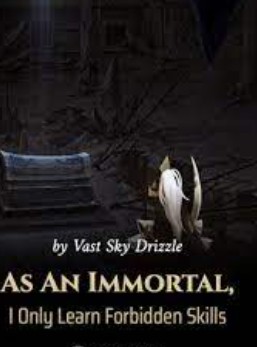Chapter 220
However, the occupation of Kling was not as smooth as expected, because the German army deployed an air defense force in Kling.
The German army paid attention to air supremacy... In fact, if you want to carry out the "blitzkrieg" smoothly, you must pay attention to air supremacy, because air supremacy is the basis for the rapid advancement of armored forces, and it is also one of the main sources of intelligence.
On this basis, the German air defense force will follow the advance deployment of the advancing troops, and then the German army can push the airport forward step by step and shorten the attack distance of fighters and bombers as much as possible to shorten the reaction time.
The 97th Antiaircraft Artillery Battalion stationed in Kling, they belong to the German 8th Air Force... The vast majority of the German air defense forces are under the command of the Air Force.
The commander was Captain Marcus. He was a German soldier who fled from the front line and knew a lot about the Klin defense line.
"Kling is over!" The German soldier said: "They disguised as our troops and broke into the defense line, and the defense line was broken by them! They have a large number of T34 tanks!"
There are also German soldiers reminding: "There are still our tanks, that may not be our tanks!"
Captain Marcus only knows so much.
At this time, he should have retreated immediately with his anti-aircraft artillery battalion, but Captain Marcus did not do so, because he knew that the result of doing so was more likely to be hunted down by the Russians and lose most of his men and equipment …the antiaircraft artillery battalions are scattered in all corners of the city, and they need time.
After thinking for a while, Captain Marcus immediately ordered the first heavy air defense company to move closer to him.
The first heavy air defense company has two 88mm caliber anti-aircraft guns. This kind of anti-aircraft guns has been proved to be very effective against the thick armor of tanks in North Africa. Captain Marcus plans to try it.
So two 88MM anti-aircraft guns were deployed on the two straight main roads.
Shuerka and others didn't know this yet, they still followed the T34 tank and pushed forward along the street.
At this time, they dare not use German tanks and armored vehicles. After all, this is a city. If they encounter enemy tanks or armored vehicles, they will fall into a melee that is difficult to identify.
Melee combat is of no benefit to the T34, which has a long-range advantage.
This is also one of the reasons why the T34 advances along the main road. The wide field of vision makes the T34 more advantageous when encountering enemy tanks.
But Shulka didn't expect that what they had to face was not enemy tanks, but anti-aircraft guns...
With a "boom", T34 just turned a corner when there was a loud noise.
Shulka, who was following up behind the tank, clearly felt a strong wind and a shock wave, as if being pushed violently and fell to the ground.
There was a "buzzing" sound in my head, and it took a few seconds for my hearing to recover slowly.
During this time, Shulka saw that the T34 in front was on fire, so he hurriedly waved his hands to make the subordinates who were also knocked to the ground retreat.
Leonyev was even dragged back, because at that moment he seemed to be frightened and stupid... To be precise, he lost his ability to judge after being injured by the shock, just like a person who just woke up in a daze That state of being out of consciousness, where the eyes are looking, and you know what's going on, but you just can't relate it to yourself and don't know what to do.
And those infantrymen who were lying on the rear armor of the tank...all of them died in a terrifying state with bleeding from their orifices and their eyes wide open.
"What happened?" the instructor caught up from behind and asked.
"I don't know!" Shulka replied: "But they destroyed the T34!"
"Anti-tank gun?" the instructor asked.
It seems that only close-range anti-tank is possible to achieve this.
The way to deal with it is very simple, that is to suppress it with a light mortar.
But Shulka soon discovered that things were not as simple as he thought.
Shuerka poked his head quickly and then retracted again. At a glance, he found that there was no enemy at close range, but a big guy at the end of the street...
"No!" Shulka stopped the light shooter who was called up by the instructor.
"It's not an anti-tank gun!" Shulka said: "It's an anti-aircraft gun!"
"Anti-aircraft gun?" The instructor couldn't help but widen his eyes.
"Yes, anti-aircraft guns!" Shulka replied: "The distance is about seven hundred meters!"
"Seven hundred meters? Can it penetrate our tanks at seven hundred meters?" The instructor felt a little incredible about this.
But Shulka knew that this was nothing strange. On the North African battlefield, the Germans even used this gun to punch a hole the size of a blue ball in the thick armor of the British "Matilda" tank at a distance of one thousand meters.
In the near future, this gun will also be modified by the German army and put on the "Tiger" tank as the main gun.
"What should we do?" The instructor asked: "Rush up?"
"No…"
While Shulka was saying this, another T34 "rumbling" drove up.
Shulka tried to stop it but was unsuccessful.
It's not that the T34 motor is too loud to be heard clearly. The following soldiers on the armor can clearly see the infantry's gestures and inform the tank crew of this meaning.
Shuerka believes that this is another tank crew playing a hero... There are many such situations in the Soviet army, which is related to the education they usually receive.
Then, without accident, there was another "boom", and the T34 turned into a ball of fire in a blink of an eye.
The straight street gave the German anti-aircraft guns a very favorable shooting position...Tanks can only advance along this tens of meters wide street, and the buildings on both sides even allow the gunners to accurately calculate the distance between the tank and the anti-aircraft guns .
"Maybe we can switch to an infantry charge!" said the instructor.
This idea makes sense. After all, there is only one anti-aircraft gun. It is difficult for it to deal with tanks and infantry at the same time. If the infantry and tanks are scattered and cover each other to charge, it is indeed possible to succeed.
But Shulka quickly dismissed the idea.
"They will deploy firepower on both sides of the building!" Shulka said: "And it will be condescending crossfire on the street."
After Shulka said this, the instructor stopped talking.
Because if this is the case, only two machine guns, one on the left and one on the right, are needed to block the charging infantry.
At this time, another tank came up from behind, and it stopped under the obstruction of the infantry, and then Kalashnikov poked his head out and asked Shulka: "What happened in front?"
"We are blocked!" Shulka said: "Aircraft guns, they can penetrate our tanks at a long distance!"
"But the colonel ordered us to move on!" Kalashnikov said with fear in his eyes, "We must occupy Kling quickly, otherwise there may be street fighting!"
Katukov is right. If the Germans are allowed to stabilize their positions and arrange firepower on buildings, it will be very troublesome street fighting!
(end of this chapter)
RECENTLY UPDATES
3.45







